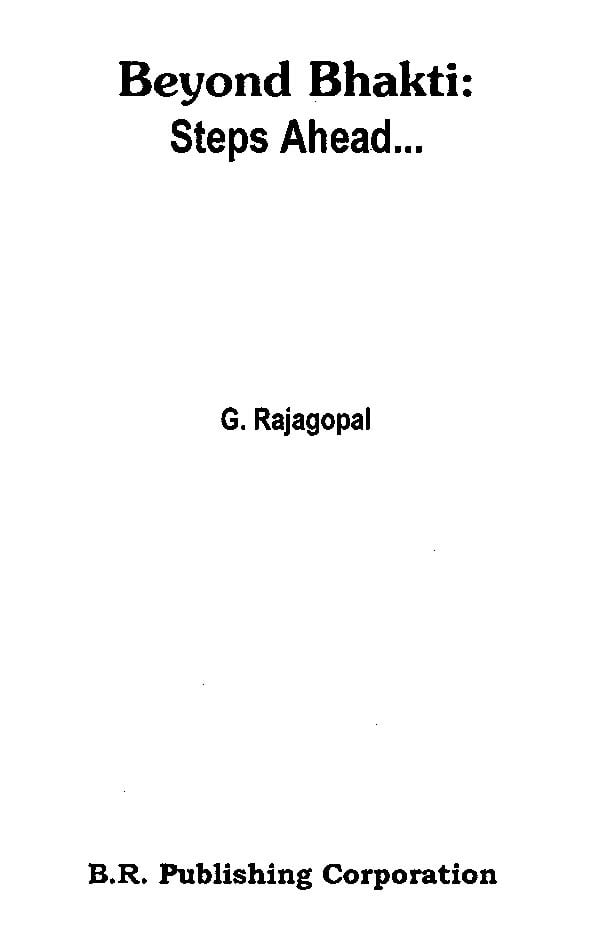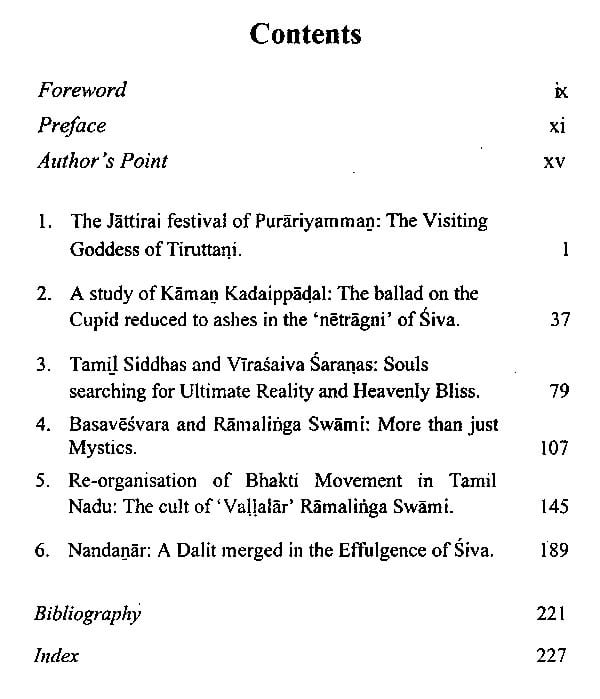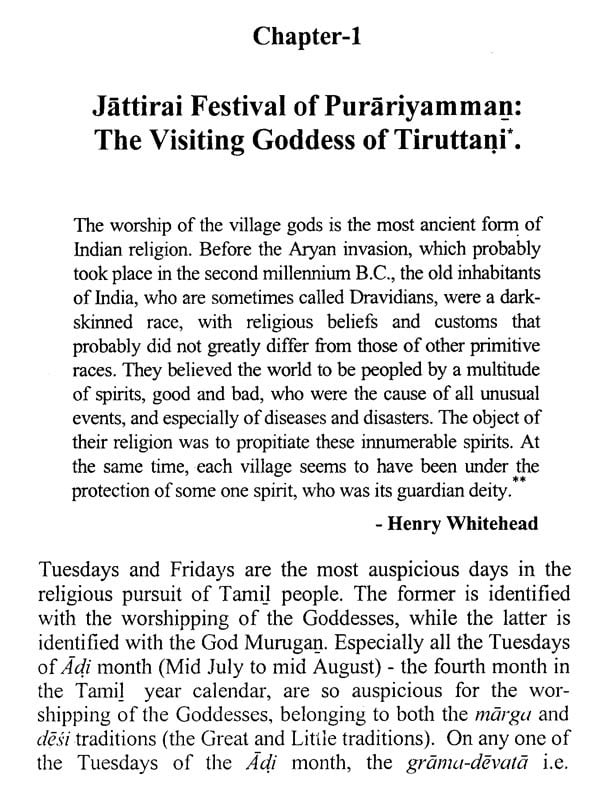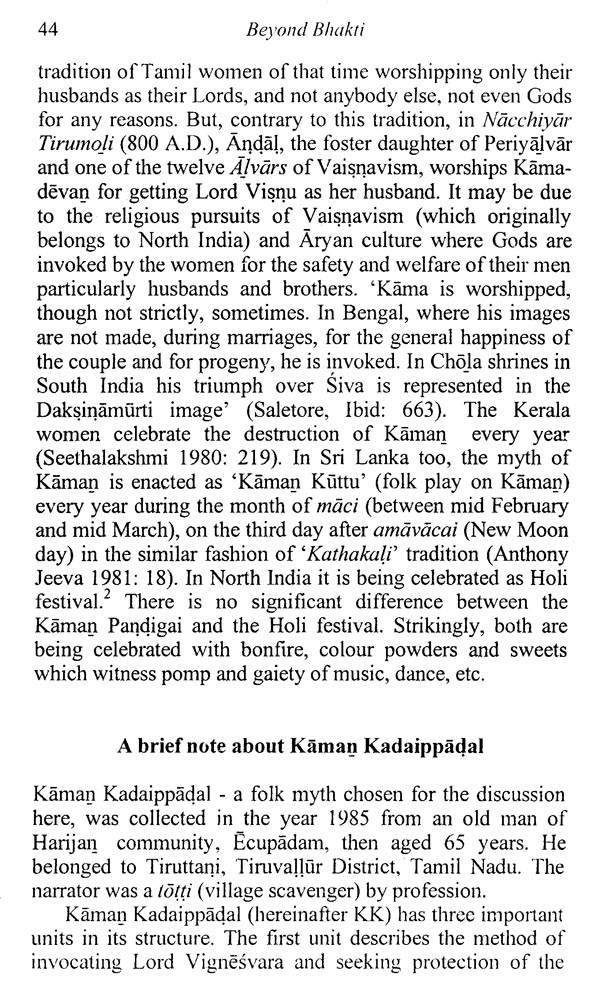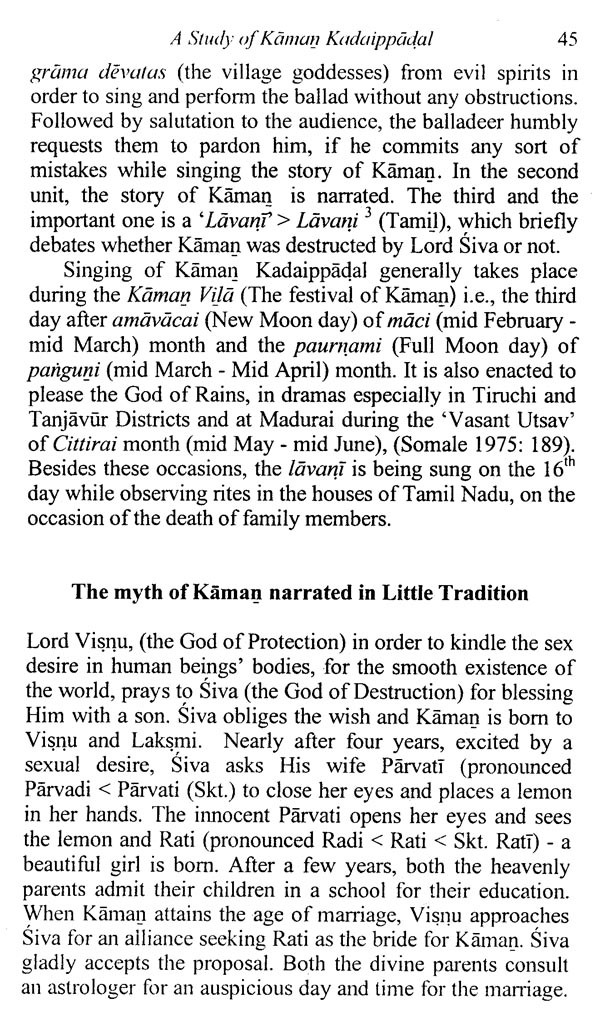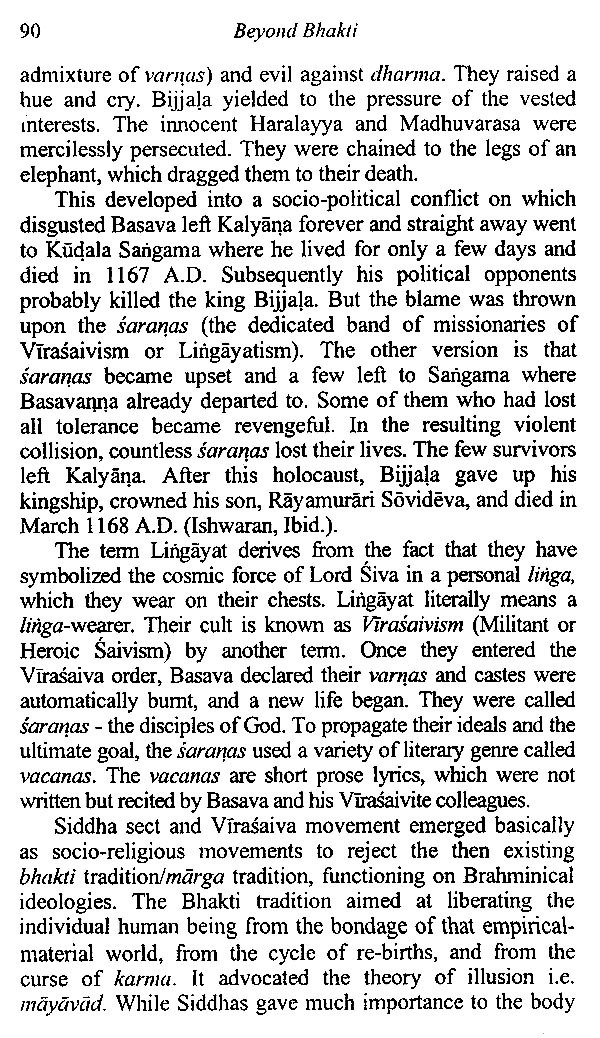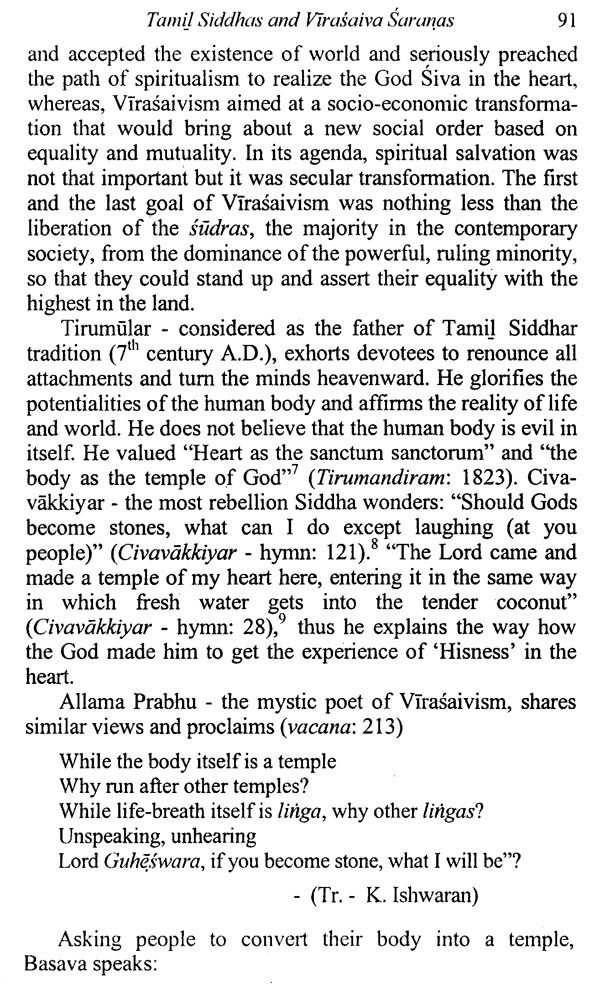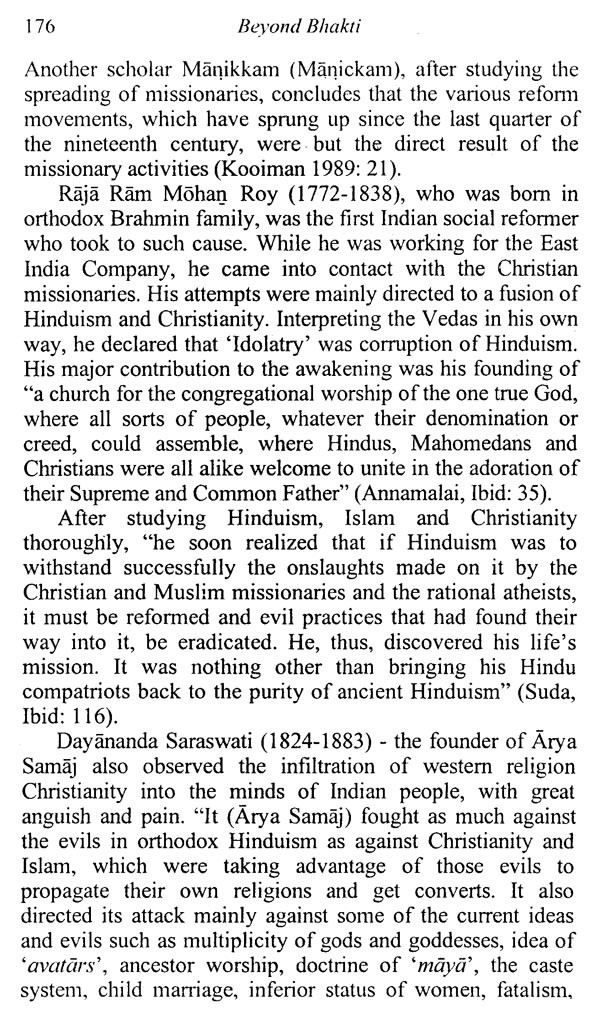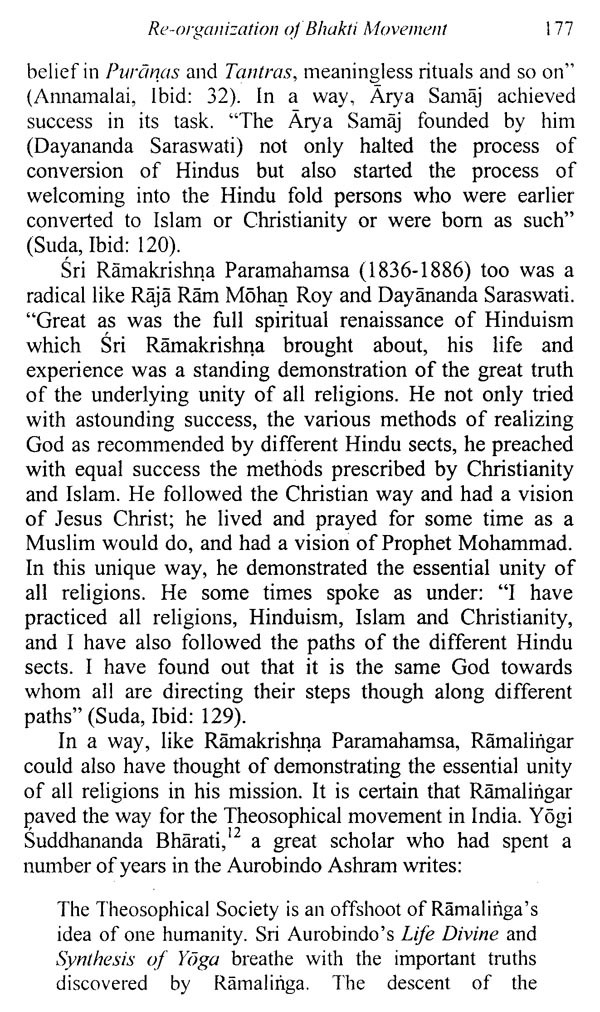
Beyond Bhakti- Step Ahead
Book Specification
| Item Code: | AZE552 |
| Author: | G. Rajagopal |
| Publisher: | B.R. PUBLISHING CORPORATION |
| Language: | ENGLISH |
| Edition: | 2007 |
| ISBN: | 9788176465106 |
| Pages: | 246 |
| Cover: | HARDCOVER |
| Other Details | 9.00x6.00 |
| Weight | 500 gm |
Book Description
To our interest, the book questions certain aspects of age old socio-cultural conventions of South India, documented in the Saiva Bhakti literature and earnestly exposes its flaws by citing the relevant facts and figures. It also analyses the common features of the Virasaiva Saranas of Karnataka and Siddhas of Tamil Nadu in general and Basavesvara and Ramalinga Swami in particular. It extensively reviews the myth of one peculiar Saiva Dalit Nayanar called Nandanar to understand the past as well as the present socio-cultural issues of Tamil Nadu.
G. Rajagopal has participated in several National and International Conferences and Seminars. His scholarly papers have been published by Universities and reputed Research Institutions. He has a special interest in Bhakti Literature. His book titled Kaman Kadai-p-Padal - Or Ayvu (The ballad on Kama - A Study) (1986) and over a dozen of articles on Bhakti theme have already been published. His forthcoming book (in collaboration with Mrs. V.N. Saraswathi) titled The Translation and Transliteration of Agananuru into Hindi (1800 Years Old Ancient Tamil Love Poems Four Hundred into Hindi) is a stupendous work, due for publication by the Tamil Development Department, Government of Tamil Nadu, Chennai.
The present book, written with comparative perspectives, is exciting and appealing. The papers, especially on Jättirai of Purariyamman and Kamadēva, shed more light on various customs and beliefs of village people where religion is more than a faith. Rajagopal's choice of issues and analysis in this book are fascinating and kindle social awareness. I am sure the book would be useful for non-Tamil people particularly to the students and scholars, who are interested in the field of folklore and Bhakti. I wish success to Dr. G. Rajagopal for his sincere attempt and his intellectual effort.
On background, it is quite heartening that G. Rajagopal has approached various facets the Bhakti Movement from comparative aspect here in this book. His treatment given the analysis vital importance from the point view of students and scholars of the Bhakti movement well as those of the Comparative study chosen the India for Consequently, he the methods of the textual survey of literary histories, the exploration folk traditions and interpretation of structures all the base of comparative studies.
**Contents and Sample Pages**
